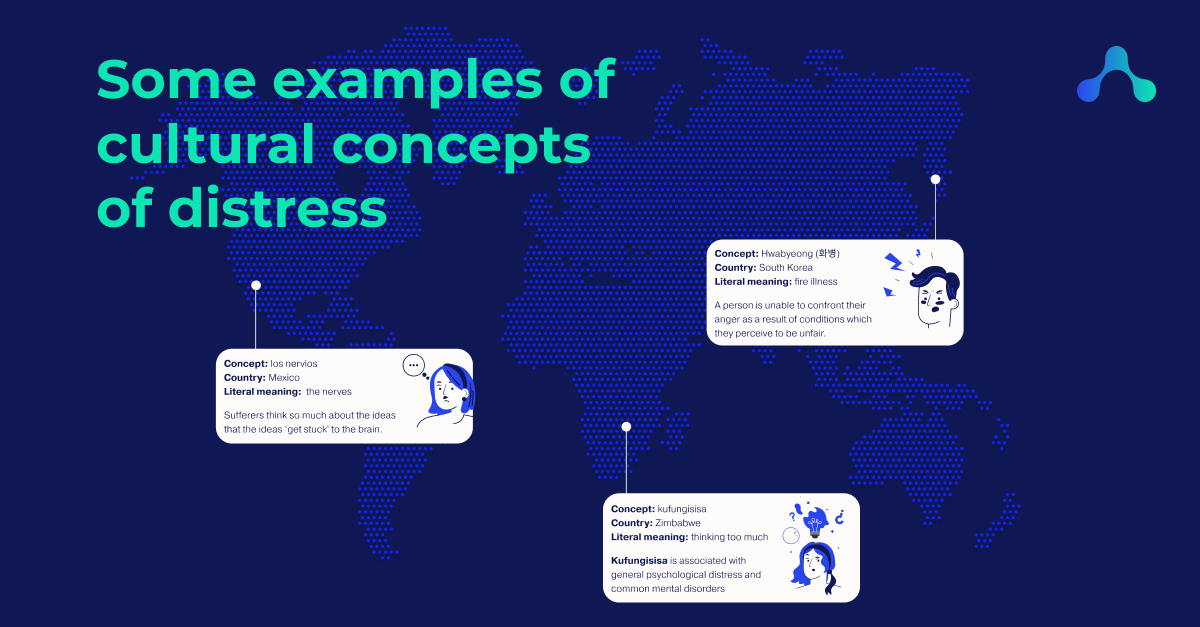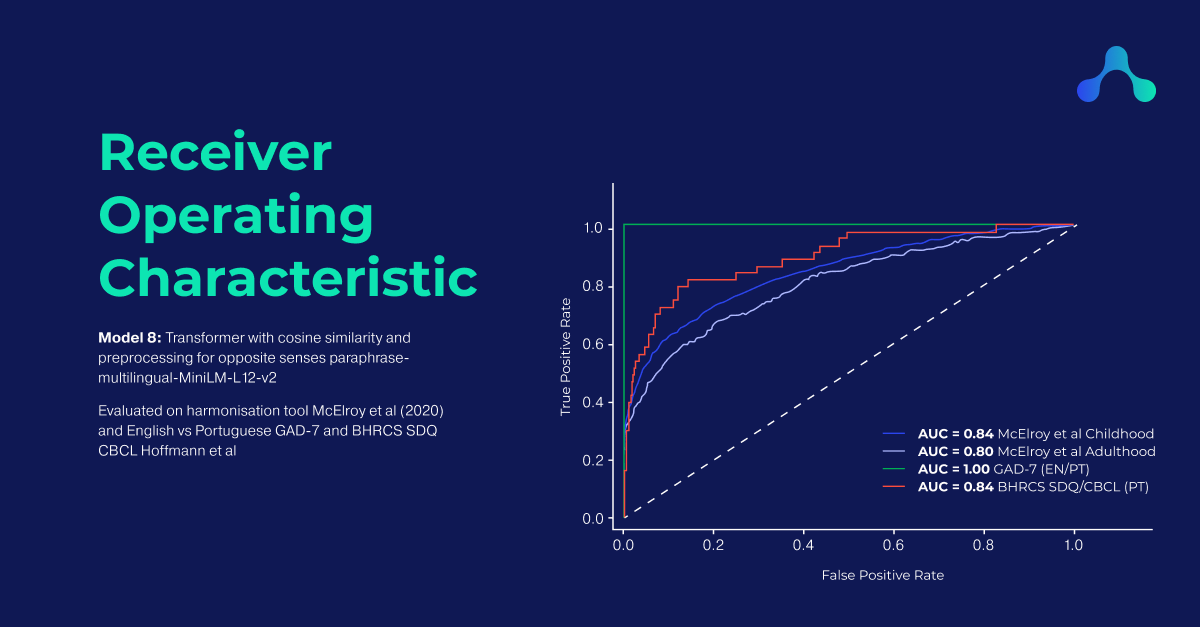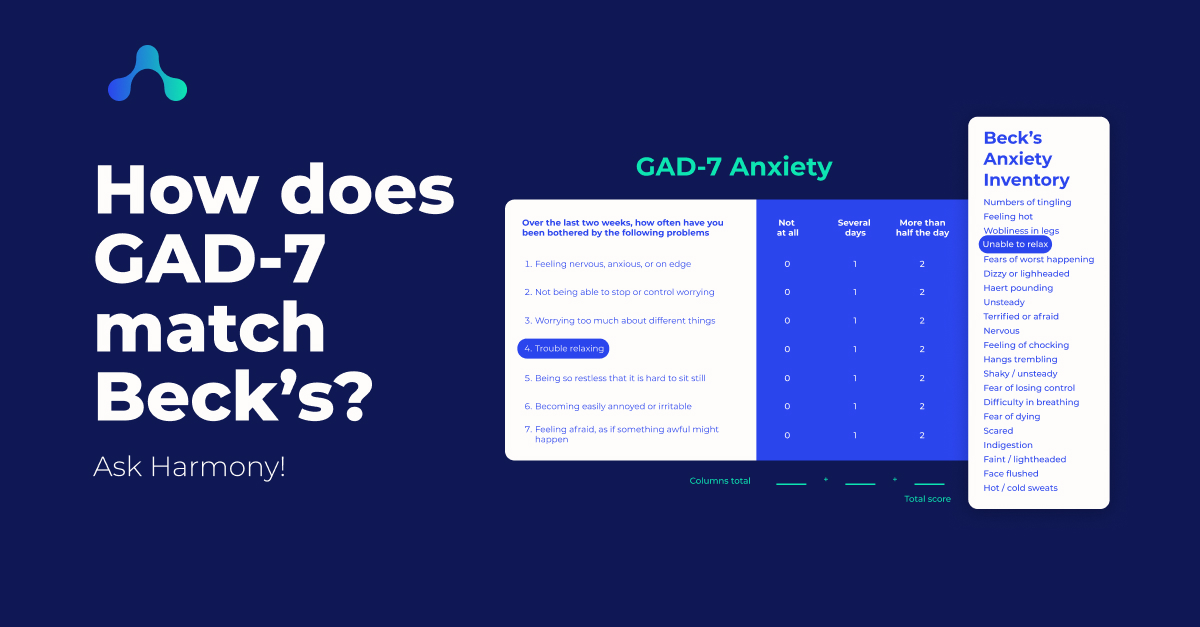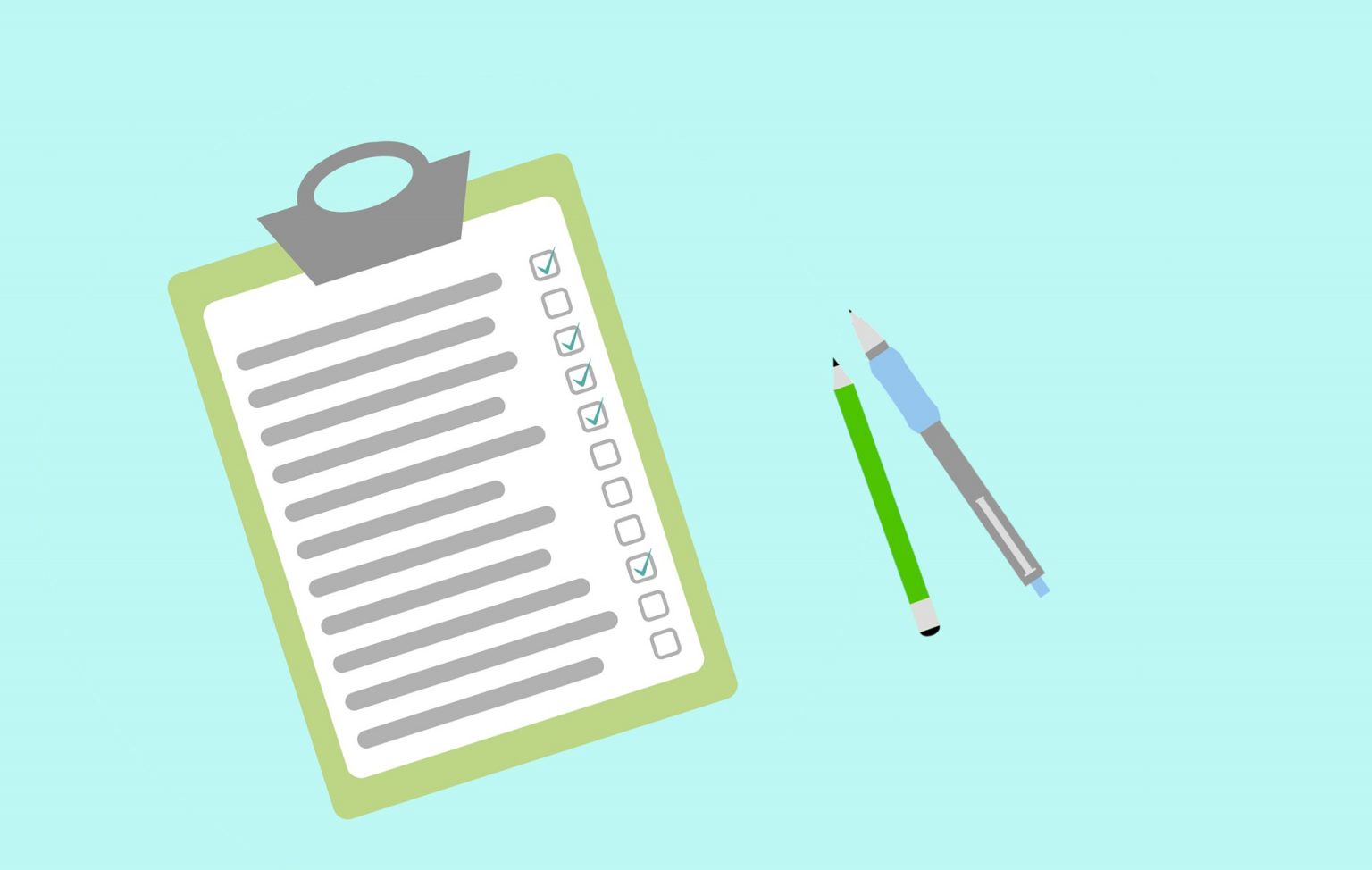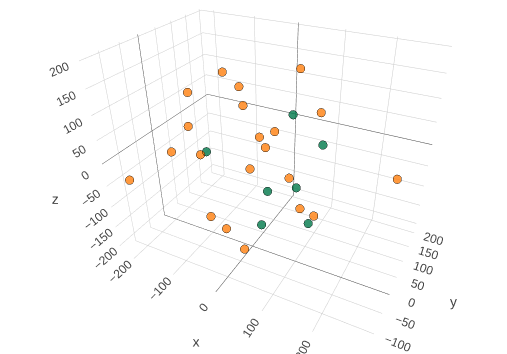How Far Can We Go With Harmony? Testing On Kufungisisa, A Cultural Concept Of Distress From Zimbabwe
Many psychologists believe that mental illnesses can vary across cultures. In 1904, Emil Kraepelin initiated the field of comparative psychiatry after studying mental health disorders in Java, writing that “Die Eigenart eines Volkes wird auch in der Häufigkeit und klinischen Gestaltung seiner Geistesstörungen zum Ausdruck kommen,” meaning “The peculiarity of a people[ethnic group] will also be expressed in the frequency and clinical form of its mental disorders.”[1]
More than a century later, the emergence of global mental health research projects has opened a number of debates about the applicability of psychiatric categories to different cultural settings, such as those in the Diagnostic and Statistical Manual of Mental Disorders (DSM) series[2].
Measuring The Performance Of NLP Algorithms
Harmony was able to reconstruct the matches of the questionnaire harmonisation tool developed by McElroy et al in 2020 with the following AUC scores: childhood 84%, adulthood 80%. Harmony was able to match the questions of the English and Portuguese GAD-7 instruments with AUC 100% and the Portuguese CBCL and SDQ with AUC 89%. Harmony was also evaluated using a variety of transformer models including MentalBERT, a publicly available pretrained language model for the mental healthcare domain.
Radio Podcast About Wellcome Data Prize
The Wellcome Data Prize was recently featured on Smile 90.4FM, a radio station in South Africa. In this episode, Inês Pote discussed the Wellcome Data Prize in Mental Health. Wellcome is on the lookout for teams that develop innovative ways to use data to improve the prevention, treatment, and management of anxiety and depression in young people in South Africa.
See also - during the Wellcome Data Prize we participated in a joint workshop with TIDAL, another team in the Data Prize.
Harmony Going Forward
5 key things Implementation Science has taught us to focus on
Yesterday the Harmony team received the wonderful news that we are given the chance to continue working on Harmony for another six months, after which we can put ourselves forward for the final round. The Wellcome Mental Health Data Prize has chosen an unusual (for the research world) approach this time, using a “Dragon’s Den” style scheme where research teams can pitch their ideas to win funding for their projects.
Semantic Text Matching With Deep Learning Transformer Models
Semantic text matching is a task in natural language processing involving estimating the semantic similarity between two texts. For example, if we had to quantify the similarity between “I feel nervous” and “I feel anxious”, most people would agree that these are closer together than either sentence is to “I feel happy”. A semantic text matching algorithm would be able to place a number on the similarity, such as 79%.
The importance of marketing for open science
Marketing is important for an open science NLP project such as Harmony for several reasons:
To raise awareness of the project and its goals. Research projects are often complex and technical, so it’s important to communicate their value and potential to a wide audience. Marketing can help to do this by creating clear and concise messaging, and by promoting the project through channels that reach the target audience. To attract contributors and collaborators.
Back To The Future – Retrospectively Harmonising Questionnaire Data
Now more than ever, the international research community are keen to determine whether their findings replicate across different contexts. For instance, if a researcher discovers a potentially important association between two variables, they may wish to see whether this association is present in other populations (e.g. different countries, or different generations). In an ideal world, this would be achieved by conducting follow-up studies that are harmonised by design. In other words, the exact same methodologies and measures would be used in a new sample, in order to determine whether the findings can be replicated.
PPIE For Secondary Data Analysis
New Discoveries for Patient and Public Involvement
About one year ago I fully entered the world of secondary data analysis research – away from applied mental health research with creative data collection methods and small sample sizes, towards big data and complex analyses efforts to overcome what someone deemed not worth measuring (Wait, why are we not assessing emotion regulation in each and every study 1?)
Of course, I know we can’t measure everything and the decision of what to measure in studies is one of the hardest to make.
How Does Harmony Work?
When you input two questionnaires into Harmony, such as the GAD-7 and Beck’s Anxiety Inventory, Harmony is able to match similar questions and assign a number to the match. (I have written another blog post on how we measured Harmony’s performance in terms of AUC).
So how does Harmony achieve this?
Harmony uses techniques from the field of natural language processing to identify when two questions deal with a similar topic.
